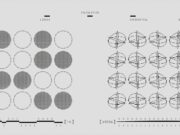In manufacturing and production, not all materials are directly tied to the final product. These are known as . They play an essential role in operations but are not part of the finished goods. In this article, we will explain what are indirect materials, how they differ from direct, and why they are important for businesses.
Understanding What Are Indirect in Manufacturing
Definition of Indirect Materials
They are supplies or resources used during production but do not form part of the final product. For instance, lubricants for machinery, cleaning supplies, and tools used in the manufacturing process are all classified as.
Unlike direct materials, these items cannot be directly traced back to the creation of a specific product. They are considered part of overhead costs.
How Indirect Materials Support Production Processes
While they may not end up in the final product, essential for ensuring smooth production? For example:
- Lubricants prevent machinery breakdowns.
- Cleaning supplies maintain hygiene standards in factories.
- Safety gear like gloves and helmets protect workers during production.
Their impact is indirect, but without them, production efficiency would decrease significantly.
Indirect Materials vs. Direct Materials
Key Differences Between Direct and Indirect Costs
Direct are tangible and directly part of the final product. For instance, the wood used to make furniture is. In contrast, like glue or sandpaper are not directly part of the product but assist in the production process.
Here’s a simple comparison:
| Direct Materials | Indirect Materials |
| Tangible and part of the final product | Essential for production but not part of the final product |
| Examples: wood, metal, fabric | Examples: lubricants, cleaning supplies, safety gear |
| Easily traceable to a specific product | Cannot be traced to a specific product |
Examples of Indirect Materials in Manufacturing
Some examples of in manufacturing include:
- Maintenance supplies like oils and lubricants
- Packaging that are not part of the product but assist in delivery
- Small tools such as screwdrivers or wrenches used during production
These are essential but not significant enough to account for individually.
Role of Indirect Materials in Accounting
How Indirect Impact Overhead Costs
In accounting, considered? They are part of overhead costs. Overhead costs cover all expenses not directly linked to the production of goods. This makes them important for determining the total cost of goods sold (COGS).
For example, a factory producing electronics may include soldering tools and cleaning chemicals as part of its budget. These are vital for production but cannot be tied to a single item.
Accounting for Indirect Materials in COGS
To ensure accurate financial records, businesses categorize under factory overhead in their income statements. This approach helps determine production efficiency and profitability. Properly tracking these also ensures better inventory management.
Why Indirect Are Important
Improving Factory Operations with Indirect Materials
Efficient use of keeps operations running smoothly. For instance:
- Lubricants ensure machines run without interruptions.
- Consumable materials, like cleaning agents, reduce wear and tear on equipment.
Without these supplies, machinery downtime could increase, leading to production delays and higher costs.
Managing Inventory for Consumable Materials
Inventory management for consumable like safety gloves, paper towels, or adhesives is critical. Businesses must track these items to prevent shortages. Proper budgeting ensures these are always available when needed.
FAQs on Indirect Materials
What Are Examples of Indirect Materials?
Examples include lubricants, adhesives, cleaning supplies, safety equipment, and maintenance tools. These are essential for production but do not form part of the final product.
How Do Indirect Materials Affect Operational Costs?
They are included in overhead costs and contribute to the total cost of production. Proper tracking and budgeting are necessary to manage these expenses effectively.
What Is the Difference Between Direct and Indirect Materials?
Direct are part of the final product and easily traceable, while indirect support production processes but do not directly contribute to the finished product.
Why Are Indirect Materials Important in Manufacturing?
They ensure smooth factory operations by supporting equipment maintenance, improving worker safety, and maintaining production efficiency.
By understanding businesses can better manage their production processes and overhead costs. Proper tracking of these materials is essential for improving efficiency and profitability.























